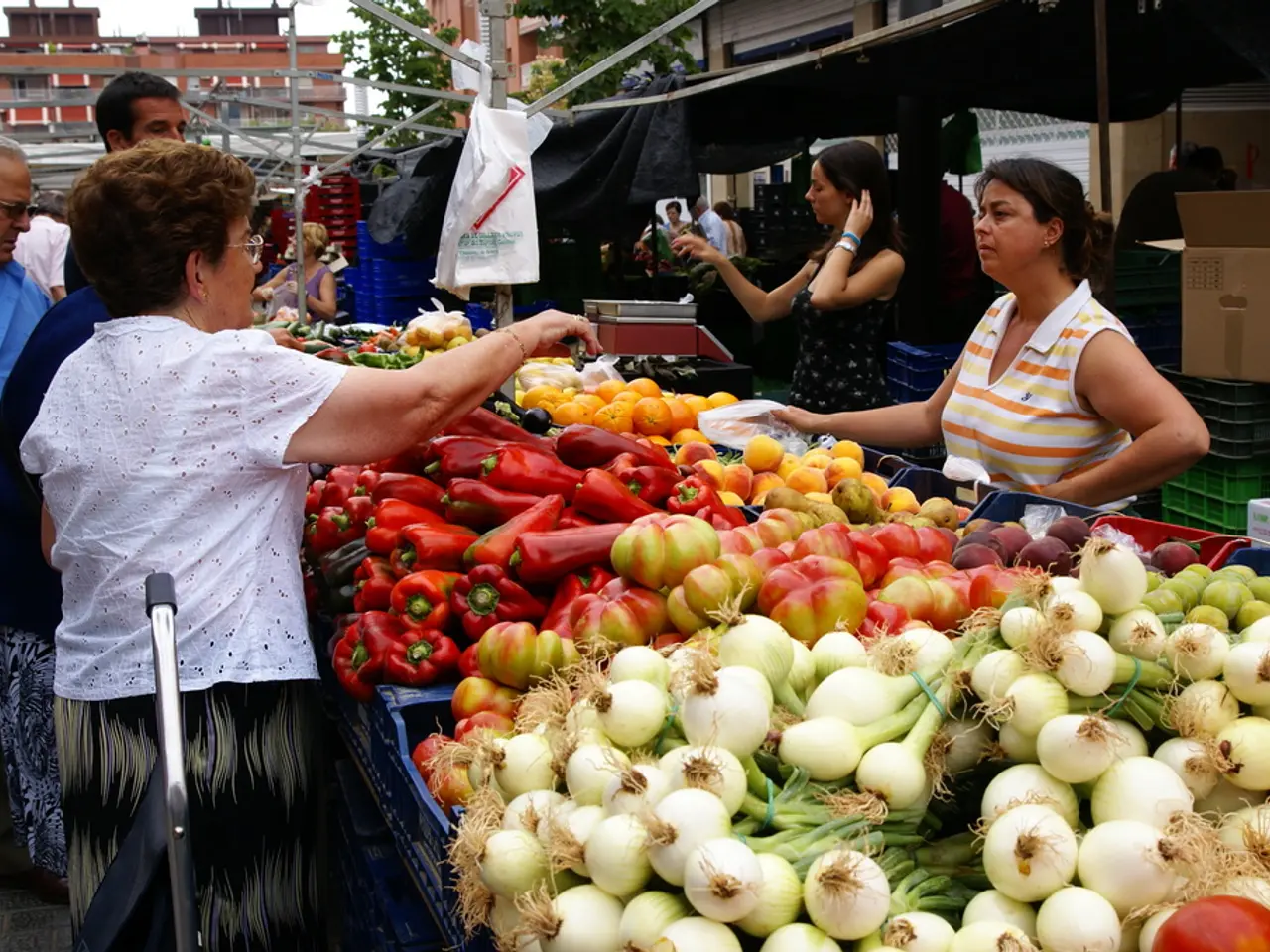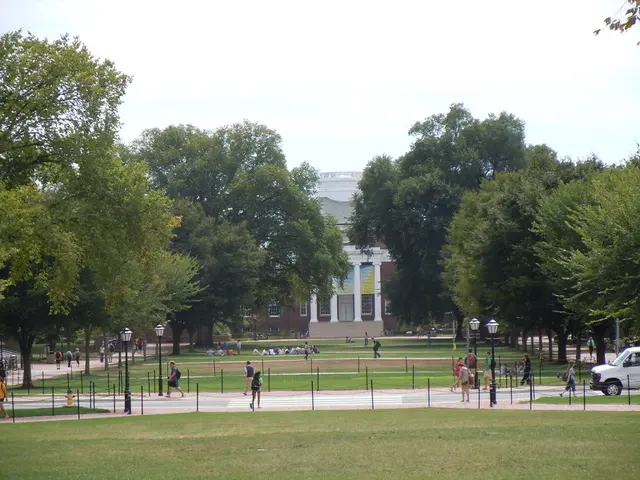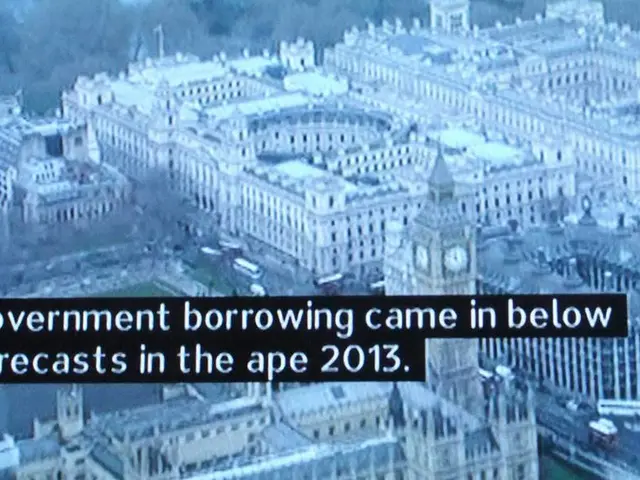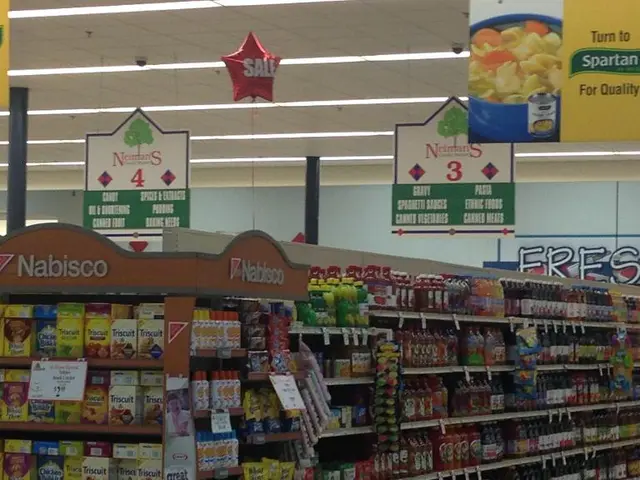Vietnam's EPR law could potentially transform packaging industry: Is Vietnam's Extended Producer Responsibility (EPR) legislation poised to initiate a packaging revolution?
The Green Packaging Forum 2025, co-organized by Việt Nam News and Law and Vinexad, was held in HCM City last Friday, attracting over 100 delegates from various sectors. The event served as a platform for policymakers, businesses, and communities to discuss and address the challenges and opportunities presented by the Extended Producer Responsibility (EPR) law for packaging waste management in Vietnam.
One of the key challenges highlighted at the forum is the regulatory complexity and inconsistency surrounding the EPR law and related regulations. Businesses have faced unclear definitions and limited access to detailed information for compliance. To address this issue, a forthcoming draft decree aims to consolidate EPR regulations into a transparent, unified legal document, simplifying compliance and enforcement.
Another significant challenge is the cost and financial burdens associated with the EPR law. Producers and importers are responsible for the financial and physical management of recycling their packaging waste, raising concerns about cost-sharing and managing these new expenses effectively. To ease the shift for Small and Medium Enterprises (SMEs), Phạm Thị Bích Phượng, sales director at Sao Khuê Food, suggested transitional support and shared infrastructure could be beneficial.
The forum also discussed the coordination complexity that arises when multiple manufacturers or subcontractors produce packaging under the same brand, complicating responsibility allocation and recycling obligations. To tackle this issue, Buì Lê Thanh Khiết, head of the Plastic Circular Unit at the Institute for Circular Economy Development, advocated for the creation of sector-specific EPR councils, stronger public awareness campaigns, and tougher enforcement.
Despite these challenges, the EPR law presents several opportunities for Vietnamese companies. One key opportunity is the legal clarity and unified framework that the forthcoming draft decree aims to provide, simplifying compliance and enforcement. The EPR framework also encourages companies to innovate sustainable packaging and integrate EPR into their ESG and branding strategies, potentially enhancing brand value and market competitiveness.
Market collaboration is another opportunity, with forums and policy dialogues fostering cooperation among producers, recyclers, startups, and regulators to develop practical, Vietnam-specific EPR solutions and circular economy models. The EPR obligations also support growth in the domestic recycling sector, creating new business opportunities and job creation.
Implementing EPR positions Vietnamese companies to meet international environmental standards and global supply chain expectations, enhancing export potential. However, Huỳnh Thị Mỹ, vice chair and secretary-general of the Việt Nam Plastics Association, warned that without investment in modern recycling technology, collected plastic could still end up exported or discarded.
Speakers at the forum agreed that platforms like the Green Packaging Forum play a crucial role in connecting policymakers, businesses, and communities to address policy gaps and share solutions. Việt Nam News and Law, founded in 1991 and merged in 2025 with Law & Legal Forum, was emphasized as playing a significant role in driving the conversation on renewable energy, green finance, ESG communication, and circular economy models.
Nguyễn Minh, Editor-in-Chief of Việt Nam News and Law, emphasized that circular economy thinking must go beyond recycling. Companies selling packaged goods must meet mandatory recycling quotas, either by running their own collection and recycling systems or paying into a national recycling fund managed by the Ministry of Agriculture and Environment. Larry Lee, deputy general director of Strategic Assets & Sustainability at SABECO, urged businesses to view the EPR law as an opportunity rather than a burden.
In conclusion, while Vietnamese companies must navigate evolving regulations, financial responsibilities, and operational complexities, the EPR law presents a strategic chance to lead sustainable packaging innovations and engage in Vietnam’s transition to a circular economy.
- The Green Packaging Forum 2025 discussed the challenges and opportunities of the Extended Producer Responsibility (EPR) law for packaging waste management in Vietnam.
- One challenge is the regulatory complexity and inconsistency surrounding the EPR law and related regulations, with businesses facing unclear definitions and limited access to detailed information for compliance.
- A forthcoming draft decree aims to simplify compliance and enforcement by consolidating EPR regulations into a transparent, unified legal document.
- The cost and financial burdens associated with the EPR law are also a concern, with producers and importers responsible for the financial and physical management of recycling their packaging waste.
- To ease the shift for Small and Medium Enterprises (SMEs), stronger transitional support and shared infrastructure could be beneficial.
- The coordination complexity arises when multiple manufacturers or subcontractors produce packaging under the same brand, making responsibility allocation and recycling obligations challenging.
- To tackle this issue, the creation of sector-specific EPR councils, stronger public awareness campaigns, and tougher enforcement are advocated.
- The EPR law presents opportunities for Vietnamese companies, such as legal clarity, unified framework, and brand value enhancement through sustainable packaging and EPR integration into ESG and branding strategies.
- Market collaboration is crucial, fostering cooperation among producers, recyclers, startups, and regulators to develop practical EPR solutions and circular economy models.
- Implementing EPR positions Vietnamese companies to meet international environmental standards and global supply chain expectations, but investing in modern recycling technology is vital to avoid exporting or discarding collected plastic.




